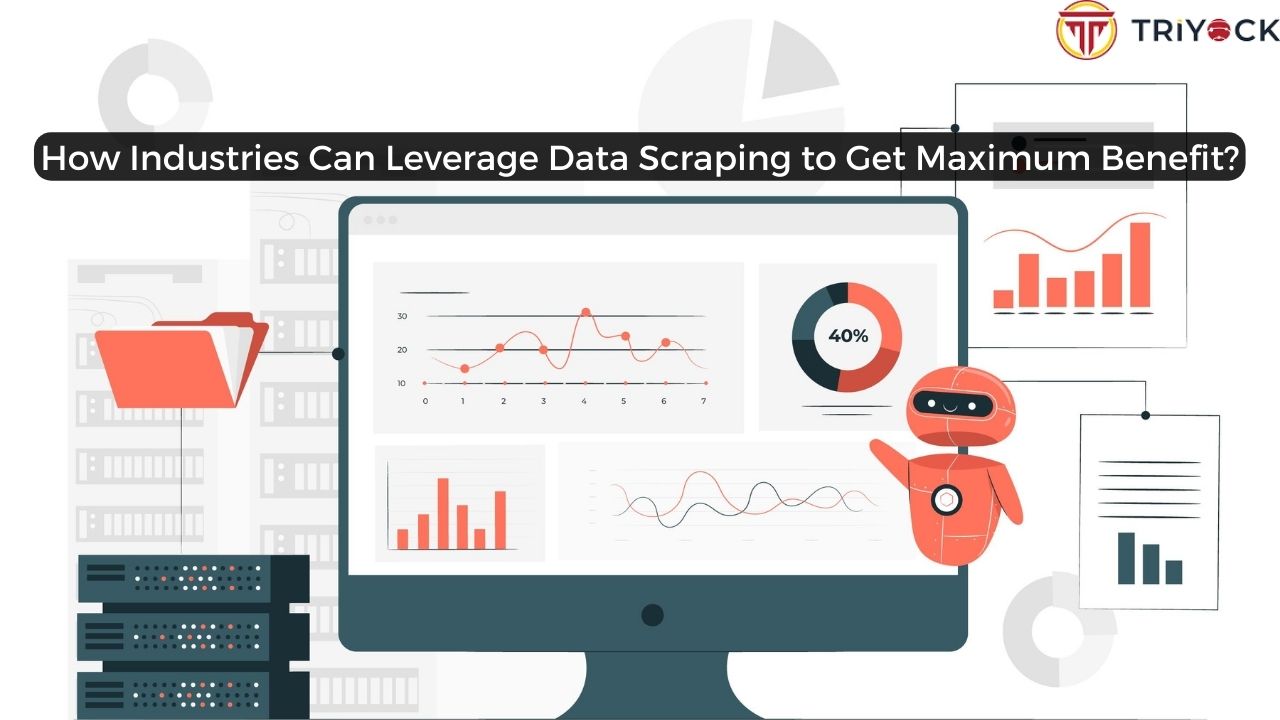
How Industries Can Leverage Data Scraping to Get Maximum Benefit?
Rashmi Soni
How Industries Can Leverage Data Scraping to Get Maximum Benefit?
Web scraping is the process of automatically extracting data from websites using software tools or scripts. The extracted data can then be used for various purposes such as analysis, research, and automation. Also known as data scraping or extraction, this process proves to be useful when a public website provides limited access or doesn’t have an API.
In simpler terms, web scraping or data scraping is used by businesses or individuals who want to extract online public information to make better decisions and generate useful insights.
If you have extracted information from a third-party website, this means that you have conducted the role of a web scraper. The only difference is that you did it manually which is a tedious process. In the automated data scraping process, intelligent automation tools are used to derive results.
There is a huge demand in today’s online world for data scraping because of plenty of reasons. Here are some of them –
Data-driven decision-making: With the increase in the volume of online data, businesses are relying more on making decisions using the current data. Web scraping allows businesses to collect large amounts of data from the web and use it to make informed decisions.
Competitive intelligence: Web scraping can help businesses gather information about their competitors, such as pricing, product offerings, and marketing strategies. This information can be used to gain a competitive advantage.
Lead generation: Web scraping can be used to collect contact information from websites, such as email addresses and phone numbers, which can be used for lead generation.
Market research: Web scraping can be used to collect data on consumer behavior, market trends, and product reviews, which can be used for market research.
Automation: Web scraping can be used to automate repetitive tasks such as data entry, content aggregation, and website monitoring.
Overall, web scraping is an important tool for businesses and individuals who want to collect and analyse data from the web. However, it is important to note that web scraping must be done ethically and legally, and should comply with the terms and conditions of the websites being scraped.
The importance of data scraping in today’s digital world is –
Quick data collection: Web scraping enables the efficient and automated data collection from all over the internet. It saves your resources and time.
Various purposes: This process proves to be beneficial for multiple purposes like competitor analysis, market research, and machine learning.
Cost-effective: The process of data scraping eliminates the requirement of purchasing information from another website. This significantly reduces your cost.
Real-time data: Data scraping helps collect real-time data so that the business can make the right decisions at the correct time.
How Web Scraping is Valuable for Business?
Web scraping is used by almost every business today because of the ways it serves its requirements. Here is how this process proves to be valuable for the business –
Competition Analysis: There are plenty of businesses selling the same products or services as yours. This means that there is a huge volume of data in real time that you can use. As you analyse the competition in the same field, it helps you set the price of your products or services accordingly.
Generate Leads: The most important process of generating leads is through updated information. Since the information online is unstructured, web scraping helps you find the social media channels of your competition, their forums, and community portals to acquire their customers.
Brand Monitoring: Web scraping fetches the data from different channels to help companies track and measure success. This success rate is measured against the competitor to see where they stand as a brand.
Sentiment Analysis: The biggest driving force for any online customer is a review. Plenty of users post their experiences and this information is publicly available. The information can be scraped to gain information about the business, competition, and ongoing preferences.
Search Engine Results: Whether you are a startup or an existing player in the market, you have to include SEO in your digital marketing strategy. Its main purpose is to boost website traffic and convert visitors into leads. Web scraping can help collect a significant amount of data so that the right strategy of SEO can be implemented.
Industries that Must use Data Scraping
Data scraping is a useful technique for extracting information from various online sources. Many industries can benefit from data scraping to gain valuable insights and competitive advantages. Here are some industries that often rely on data scraping:
E-commerce: Online retailers can use data scraping to monitor competitor prices, analyse customer reviews, and track product trends. Getting access to competitor information can help them provide a competitive benefit to the customers.
Real Estate: Real estate professionals can use data scraping to monitor property prices, analyse property trends, and track rental rates. They can also use the data to get information about agents, mortgages, foreclosures, and more.
Marketing: Marketers can use data scraping to collect information about potential customers, including their demographics, interests, and behaviour patterns. This is used to create better marketing campaigns and strategies.
Finance: Financial institutions can use data scraping to track market trends, analyse stock prices, and monitor economic indicators. Web scraping can also help financial companies in conducting due diligence on investments.
Healthcare: Healthcare providers can use data scraping to monitor disease outbreaks, track patient outcomes, and analyse medical research. This helps them provide cost-effective care and treatment facilities to the patients.
IT: IT and tech departments use data scraping to analyse whether a particular product would succeed in the market or not. The process also helps these professionals in tapping untouched niches that can bring positive results.
Logistics : The logistics department utilises web scraping to monitor shipments, delays in deliveries, and other important information. This helps in improving overall operations and retaining customers for a long time.
Overall, any industry that relies on data analysis and decision-making can benefit from data scraping to gather, analyse, and make sense of large volumes of information. This gives an edge to the business over its existing competitors in the market.





 info@triyock.com
info@triyock.com